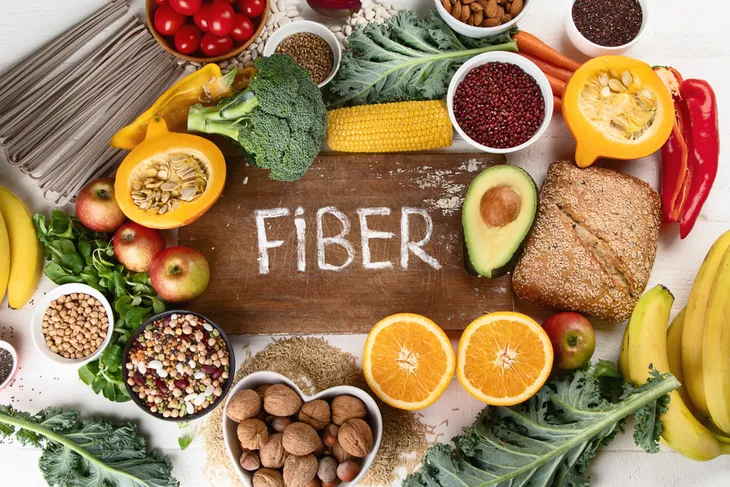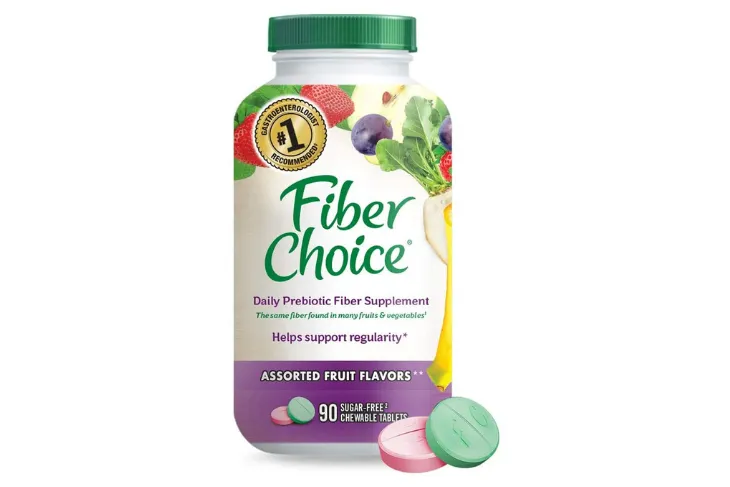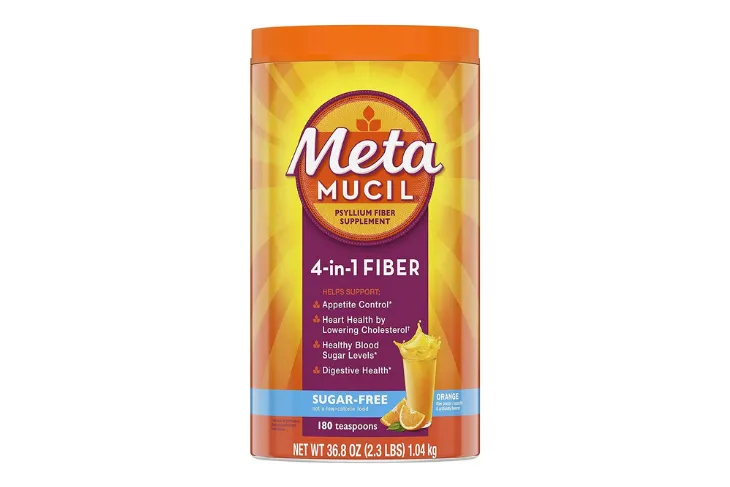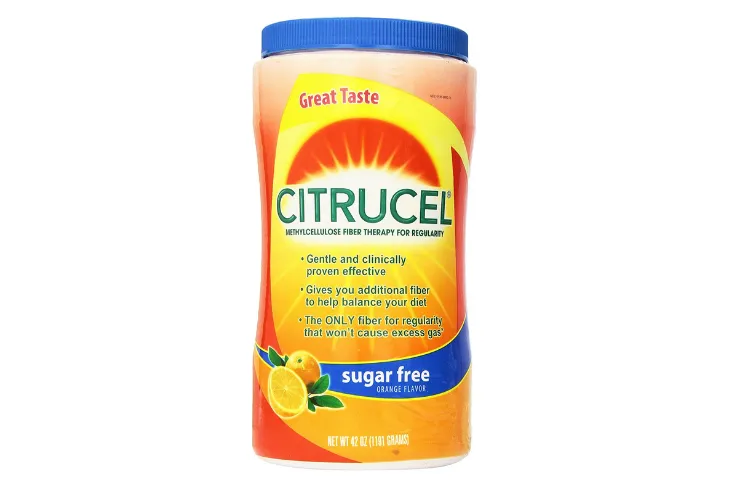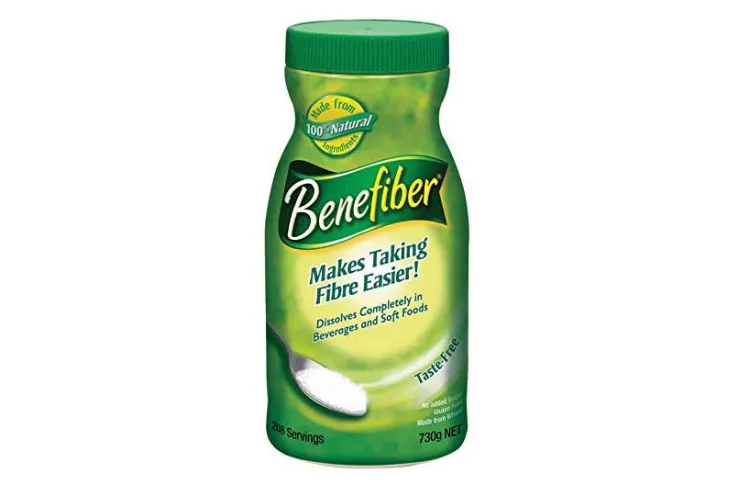Fiber is a type of carbohydrate that the body cannot digest. It has a plethora of benefits from lowering your cholesterol to managing your blood sugar levels, and it may even help with weight loss. Unfortunately, many people don’t get enough daily fiber from food. That’s where supplements come in.
Fiber supplements can help you reach the daily recommended amount. Some people even use fiber supplements to help relieve constipation and others take them because they’re recommended by their doctor. But before you purchase just any fiber supplement, there are some things you should know. In our complete guide to fiber supplements, we take a look at their benefits, the available types, when you should take them, and safety tips you should consider.
The Benefits of Fiber
Fiber is an essential nutrient that everyone needs. Promoting healthy digestion, improving heart health, and aiding in weight loss are a few of the benefits you can gain from fiber.
Women should aim for about 25-grams of fiber per day whereas men should aim for about 38-grams. There are plenty of ways to get more fiber into your diet including high-fiber foods like split peas, lentils, artichokes, raspberries, and so much more. But if you have a hard time getting enough fiber from food, fiber supplements can be a great option.
Dietary Fiber vs. Fiber Supplements: Which Is Better?
The best way to obtain the benefits of fiber is to consume it from fiber-rich foods. Fiber is found in many fruits, vegetables, beans, nuts, and even whole grains! If you track the fiber content of each food, you can easily achieve the daily recommended amount from food alone.
That said, some people may choose to rely on fiber supplements to hit their goals. But WebMD says, “It’s unclear whether the fiber found in supplements or fortified foods gives the same health benefits as naturally occurring sources.” The source also explains due to this, most fiber supplements aim to prevent constipation instead of other benefits such as lowering cholesterol.
This is why you should always talk to your doctor before taking new supplements. They can determine whether supplements are a good fit for you.
When Is the Best Time To Take Fiber Supplements?
If you’ve decided, or your doctor has recommended that fiber supplements are a good fit for you, you might be wondering when is the best time of day to take them? First, pace your fiber supplement intake throughout the day. This will help keep your digestive system balanced.
If weight management is your goal, then you may want to take fiber supplements with breakfast, lunch, and dinner to help keep you full for longer.
Types of Fiber Supplements
Fiber supplements come in many forms including chewable tablets, capsules, and even powders. WebMD explains the supplements contain functional fiber “which may be extracted from natural sources or made in a lab.”
Next, we’ll explore some of the common types of fiber supplements and popular products you can try. Just be sure to speak with your doctor to find the right type for you.
Inulin
Inulin is a prebiotic fiber that may help maintain gut bacteria. Healthline explains, “This is important because these digestive bacteria play a significant role in how well you absorb nutrients and even produce hormones related to anxiety and appetite.”
One great source of inulin is Fiber Choice. This is a 100-percent prebiotic fiber supplement. Just two tablets contain 4-grams of fiber.
Psyllium
Psyllium is a soluble fiber made from the husks of Plantago ovata seeds. In fact, 70-percent of it is soluble fiber which can help make you feel full for longer. The other 30-percent is insoluble fiber which helps provide bulk to your stool and promotes regular bowel movements.
Healthline also explains psyllium may even help ease the symptoms of irritable bowel syndrome (IBS) and Crohn’s disease. You can find psyllium in popular products like Metamucil which you can get in powder form or capsules.
Methylcellulose
Methylcellulose is another form of soluble fiber. Healthline states methylcellulose may be less likely to cause bloating and gas compared to psyllium.
You can find it in popular products like Citrucel with SmartFiber which is available in capsules or powder form. Two capsules contain 1-gram of fiber while 1-tablespoon of the powder contains 2-grams of fiber.
Wheat Dextrin
Dextrin is a common byproduct of the mill process of wheat. It’s gluten-free and can even be added to your food while cooking. Some of the benefits are it’s tasteless, and it can dissolve in both cold and hot liquids.
Dextrin can be found in products like Benefiber. Since it’s a soluble fiber it can help regulate your digestion and may also help manage your blood sugar. This is a great option for someone with type 2 diabetes.
The Side Effects of Fiber Supplements
Adding too much fiber to your diet at once can cause side effects like gas, bloating, and cramps. To prevent this from happening, make sure you ease into the supplements to help your body adjust to the added fiber.
Begin with a small dose and increase the dose daily or weekly. But listen to your body. If you notice side effects, decrease the dosage until your body adjusts.
 NaruFoto / Shutterstock
NaruFoto / ShutterstockSupplement Safety Tips
Fiber supplements are generally safe for most people but anyone with a preexisting condition should always consult their doctor before taking a new supplement. Some products also recommend that children under 6-years old and women who are pregnant or breastfeeding should also check with their doctor before taking the supplements. Make sure you read the manufacturer’s instructions.
It’s also important to drink plenty of water when increasing your fiber intake. Fiber draws water into the bowel, which can cause dehydration if you don’t drink enough. Finally, it’s worth noting, taking fiber supplements won’t make up for a poor diet. Try your best to obtain fiber from natural sources first, and then take supplements if needed or if recommended by your doctor.


